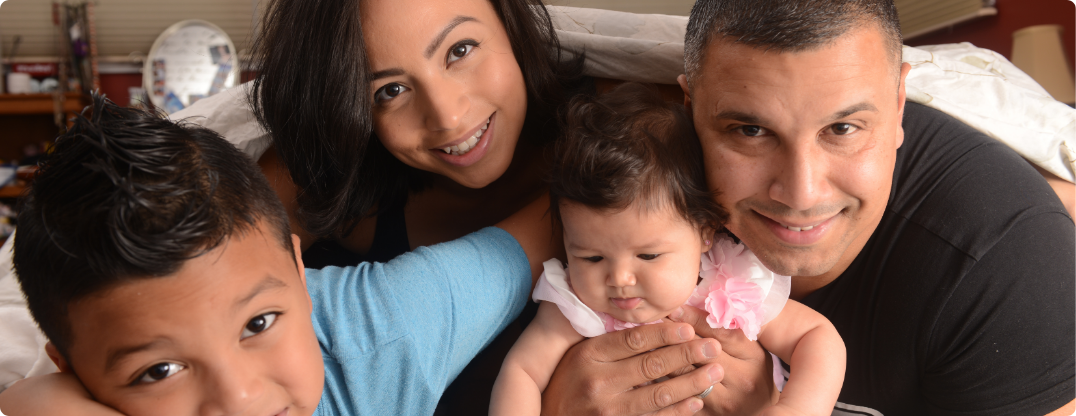Public benefits can play an important part in financial planning for the adult life for people with disabilities.
Social Security Administration
Healthcare Public Benefits – Medi-Cal and Medicare
In-Home Supportive Services

Social Security Administration
The Social Security Administration (SSA) provides many options for people with disabilities to receive public benefits.
- Supplemental Security Income (SSI) can provide a monthly income for adults living with a disability if they qualify and have income and resources below specific financial limits. View PHP’s video, Applying for SSI, for information on the process.
- Social Security Disability Insurance (SSDI) has a Disabled Child Benefit, also referred to as Childhood Disability Benefits. See the SSA 2023 publication: Benefits for Children (and Adults) with Disabilities to find out how people with disabilities can increase their monthly benefit when their parents begin drawing on their own social security. Also, see the VR Toolkit for SSDI Youth from Vocational Rehabilitation Youth Technical Assistance Center (Y-TAC)
- CalFresh is for people with low income who meet federal income eligibility rules and want to put healthy and nutritious food on the table. SSI recipients may be eligible for CalFresh food benefits without affecting current SSI benefits.
- SSI at Work Toolkit is a comprehensive guide to help people understand how wages impact SSI benefits. The toolkit provides essential information, examples, case studies, quizzes, and fact summaries for individuals with disabilities, family members of individuals with disabilities, and professionals who assist people with disabilities.
- Ticket to Work is another program that can help those who want to work and maintain their SSI benefits. Ticket to Work connects people with disabilities to free employment services to help decide if working is appropriate, prepare for work, find a job, and/or maintain success while working.
Healthcare Public Benefits – Medi-Cal and Medicare
Medi-Cal is California’s Medicaid program. This is a public health insurance program that provides needed healthcare services for low-income individuals including families with children, seniors, and persons with disabilities. Medi-Cal benefits include doctor visits, hospital care, immunization, and mental health and substance use disorder services. (See “medically necessary” healthcare). Medi-Cal is financed equally by the state and federal government.
If a person qualifies for SSI, they automatically qualify for full Medi-Cal coverage. If a person does not qualify for SSI, see Steps to Medi-Cal.
Medicare is a health insurance program for people 65 years of age and older, some disabled people under 65 years of age, and people with End-Stage Renal Disease..
Anyone eligible for Social Security Disability Insurance (SSDI) Disabled Child Benefit is also eligible for Medicare after a 24-month qualifying period. The first 24 months of disability benefit entitlement is the waiting period for Medicare coverage. Please see SSI Transition to SSDI/DAC and Maintaining Medi-Cal in PHP’s e-learning video library.
It is possible for some people with disabilities to be eligible for both Medicare (under SSDI/DAC) and Medi-Cal. People who qualify for both Medicare and full Medi-Cal are known as “dual eligibles” or “Medi-Medis.” Please see Medi-Cal for People with Medicare and Disabled Adult Child (DAC) Medi-Cal Program Benefits.
In-Home Supportive Services
In-Home Support Services (IHSS) is a program that was created to help those eligible to live safely in their homes. Eligibility includes being 65 years old (or older), disabled, or blind. Children with disabilities may also be eligible for IHSS, and parents may even be paid as the provider of their services.
Eligibility criteria include:
- Physically reside in the United States and be a California resident
- Have Medi-Cal eligibility determination
- Must live at home or a place of your own choosing (acute care hospital, long-term care facilities, and licensed community care facilities are not considered “own home”)
Services that can be authorized through IHSS include:
- Domestic services (housecleaning, vacuuming, dusting, etc.)
- Related services (meal preparation, shopping, running errands, etc.)
- Non-medical personal care services (bowel and bladder care, grooming, bathing)
- Accompaniment to medical appointments
- Protective supervision (eligible person must have a “mental illness” or “mental impairment” that impairs their judgment, memory, and orientation)
View PHP’s video, Applying for IHSS, for information on the process, and Disability Rights CA Guide to IHSS.









